The ups and downs of Harry and Meghan’s relationship with the media
The duchess is pursuing legal action against Associated Newspapers.

The Duke and Duchess of Sussex’s relationship with the press has been a difficult one which has disintegrated over time.
Soon after Harry began dating American actress Meghan Markle, he attacked the media over its “abuse and harassment” of his girlfriend.
Kensington Palace warned on his behalf: “This is not a game – it is her life.”
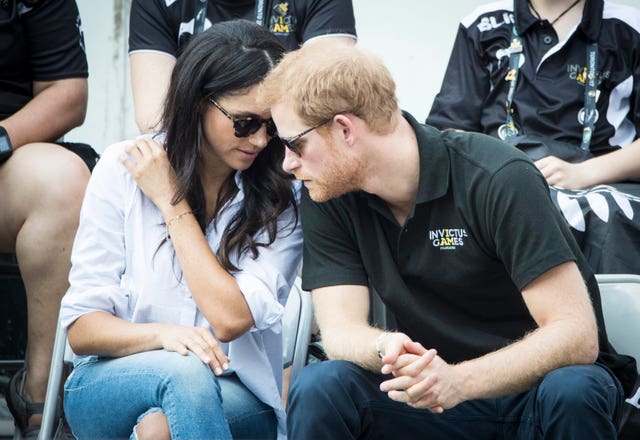
The couple’s engagement was celebrated with a press photocall and a television interview.
Their royal wedding, broadcast around the world, was a glittering high-profile affair, with 600 guests and a carriage ride through Windsor.
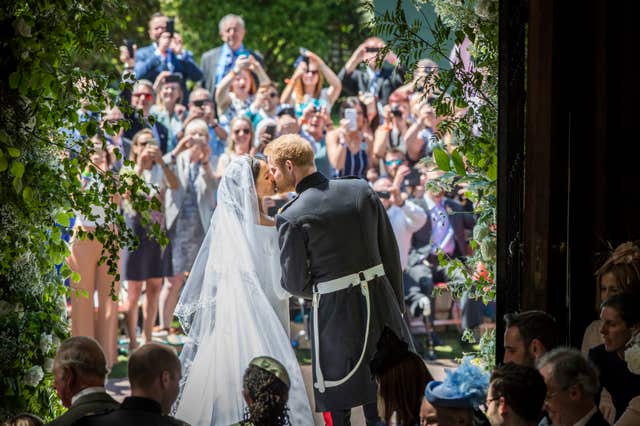
But the Queen’s grandson, who, along with Meghan, has now quit as a senior working royal, grew up fully aware of the impact of overwhelming media intrusion on the daily life of his mother Diana, Princess of Wales.
He was only 12 when the princess was killed in a crash after her car, driven at speed by a drunk chauffeur, was chased through the streets of Paris by the paparazzi.
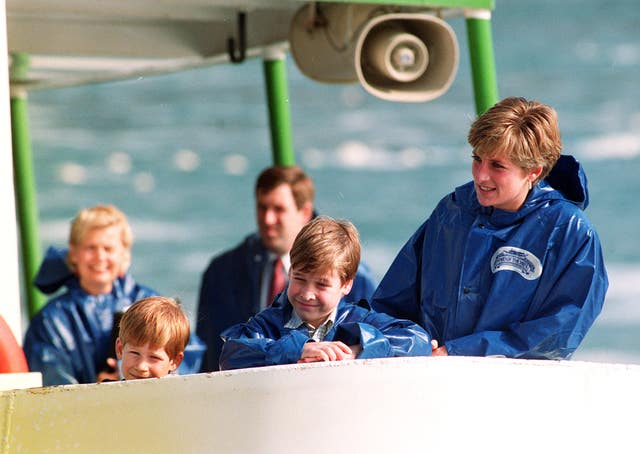
In October 2019, the Sussexes overshadowed the end of their official tour to Africa by each bringing separate legal actions against parts of the press, with Meghan suing the Mail On Sunday over an alleged breach of privacy when it published a private letter between her and her estranged father.
The Mail On Sunday said it stood by its story.
Harry later filed his own proceedings at the High Court against News Group Newspapers, which owns The Sun and the now-defunct News Of The World, and Reach plc, which owns the Daily Mirror, in relation to the alleged illegal interception of voicemail messages.
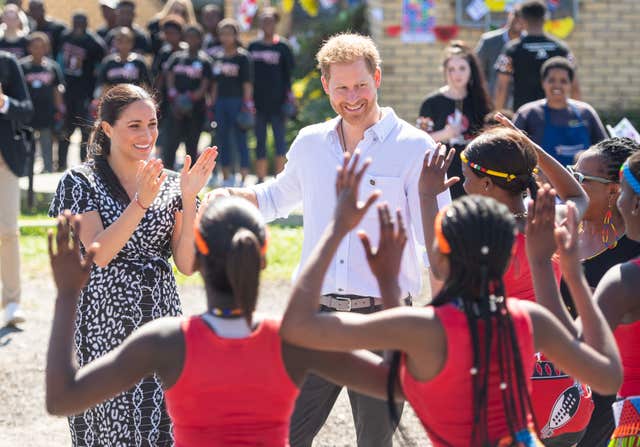
“I lost my mother and now I watch my wife falling victim to the same powerful forces,” he said.
In the ITV television documentary following the tour, Harry said he was determined to protect his family.
Meghan admitted to feeling vulnerable and spoke of the pressures of royal life amid intense tabloid interest.
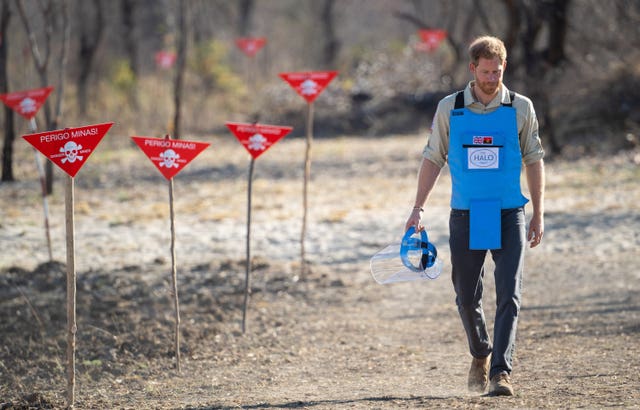
“When I first met my now-husband my friends were really happy because I was so happy, but my British friends said to me: ‘I’m sure he’s great but you shouldn’t do it because the British tabloids will destroy your life’,” she said.
She added: “I think I really tried to adopt this British sensibility of a stiff upper lip.
The duchess revealed: “I never thought this would be easy but I thought it would be fair, and that is the part that is hard to reconcile.”
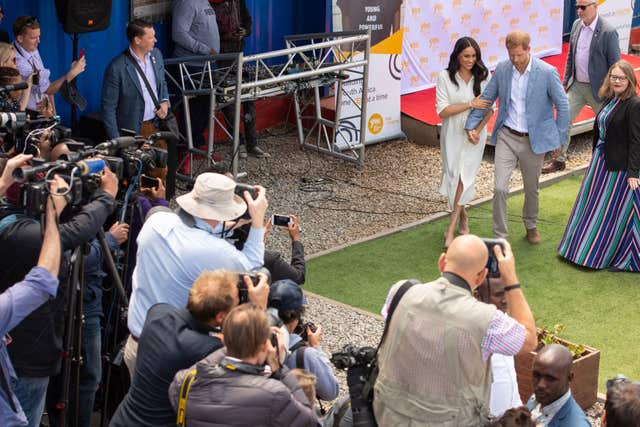
The royal crisis ended with them quitting the monarchy completely and having to drop the use of their HRH styles.
In the aftermath, Harry spoke of how he wanted his family to have a “more peaceful” life away from the royal family.
In an emotional speech at a Sentebale dinner, Harry described the media as a “powerful force”.
“When I lost my mum 23 years ago, you took me under your wing,” he told those at the charity event.
“You’ve looked out for me for so long, but the media is a powerful force, and my hope is one day our collective support for each other can be more powerful, because this is so much bigger than just us.”
They later set this is motion in a letter to tabloid editors, saying they were ending co-operation with the Daily Mail, Daily Express, the Daily Mirror and The Sun, along with their Sunday and online versions.
The letter hit out at reporting it claimed was “distorted, false, and invasive beyond reason”.
It added: “Media have every right to report on and indeed have an opinion on The Duke and Duchess of Sussex, good or bad. But it can’t be based on a lie.”





